Go Lean Commentary
It’s the principle, not the money! – Common Expression
 Normally the people who can afford to take a stand on principle rather than money are the people who do not need the money.
Normally the people who can afford to take a stand on principle rather than money are the people who do not need the money.
Who is that in our society?
Rich people, yes!
But try this … Banks!
Yes, one of the America’s biggest banks – Citigroup or Citibank – wants to reform and transform American society in regards to guns. They are putting their money where their mouth is. Or better still, they are “pulling” their money based on causes that their mouth is advocating. See VIDEO summary here:
VIDEO – Citigroup tells business partners to place restrictions on guns – https://youtu.be/JETUE8kZ1ks
Published on Mar 23, 2018 – [Citigroup] plans to prohibit retailers that are customers of the bank from offering bump stocks or selling guns to people who haven’t passed a background check or are younger than 21.
The bank is imposing the restrictions on companies that use it to issue store credit-cards or for lending and other services, according to a memo Thursday. The lender also barred the sale of high-capacity magazines.
“The policy was designed to respect the rights of responsible gun owners while helping to keep firearms out of the wrong hands,” Citigroup Chief Executive Officer Mike Corbat said in the memo to staff. “It is clear to me that most people believe there are areas of agreement and practical changes we can make to find common ground.” ...
- Category: People & Blogs
- License: Standard YouTube License
Wow, this – corporate vigilantism – can be effective for forging change. Imagine the pressure: no credit line, mortgage, installment loan, credit card processing, nor check-cashing for the business. This can affect a company’s ability to meet payroll or operate as an ongoing concern. This is called controlling the purse strings.
And what is the bank asking for their continuation of business-as-usual?
Common sense gun sale regulations. See these 3 principles here from the Internal Staff Memo in Appendix A below:
(1) they don’t sell firearms to someone who hasn’t passed a background check …
(2) they restrict the sale of firearms for individuals under 21 years of age, and …
(3) they don’t sell bump stocks or high-capacity magazines.
This commentary is written by a Citibank-Staffer, but this information (memo) is not just internal; it is also published in a Press Release. See the New York Times version of the announcement in Appendix B.
The request from Citibank here does not seem like a huge hardship. It seems only reasonable; common sense! Benevolent!
Expect other banks to follow suit, as other companies have deployed new policies and business rules related to guns.
Is this soft power or hard power?
Hard power is the use of military and economic means to influence the behavior or interests of other political bodies. This form of political power is often aggressive (coercion), and is most effective when imposed by one political body upon another of lesser military and/or economic power.[1] Hard power contrasts with soft power, which comes from diplomacy, culture and history.[1] – Source: Wikipedia.
No doubt, this is hard power; this is corporate vigilantism. But this is an effective way to forge change in a society.
This commentary is about forging change, as demonstrated with the Hot Topic of Common Sense Gun Control. This entry also concludes a short 3-part series on “Change” in society. The full catalog of commentaries in this series are as follows:
- Change! Observing the Change – Student Marches for Gun Control Reform and Action
- Change! Be the Change – RIP Linda Brown; the little girl in “Brown vs Board of Education”
- Change! Forging Change – Citibank’s Model of “Corporate Vigilantism”
All of these commentaries give insights on “how” the stewards of a new Caribbean can persuade people, establishments and institutions to forge change in their communities. Of course, this should be for benevolent purposes.
This thought of ‘forging benevolent change’ is a common theme for the movement behind the book Go Lean … Caribbean for nearly 4 years. See the full catalog here of this one, plus the previous 11 blog-commentaries that detailed approaches for forging change (in reverse chronological order):
- Forging Change – Corporate Vigilantism (Today: March 28, 2018)
- Forging Change – Soft Power (February 21, 2018)
- Forging Change – Collective Bargaining (April 27, 2017)
- Forging Change – Addicted to Home (April 14, 2017)
- Forging Change – Arts & Artists (December 1, 2016)
- Forging Change – Panem et Circenses (November 15, 2016)
- Forging Change – Herd Mentality (October 11, 2016)
- Forging Change – ‘Something To Lose’ (November 18, 2015)
- Forging Change – ‘Food’ for Thought (April 29, 2015)
- Forging Change – Music Moves People (December 30, 2014)
- Forging Change – The Sales Process (December 22, 2014)
- Forging Change – The Fun Theory (September 9, 2014)
As related in these commentaries, forging change in the 3 societal engines of a community – economics, security and governance – is how the roadmap described in the Go Lean book will make our Caribbean homeland a better place to live, work and play.
The premise of this commentary is that it is easier to lead and get people to voluntarily follow – to lean-in – when there is control of the purse strings; this is economic hard power.
Hard power as expressed by Citibank will also have its critics. Who? Mostly those that do not want to be controlled. But there is a truism in business – and in life – satirically referred to as the Golden Rule. It relates:
He, who has the Gold, makes the rules.
The book Go Lean…Caribbean – available to download for free – serves as a roadmap for the introduction and implementation of the technocratic Caribbean Union Trade Federation (CU), to better wield economic power for the consolidated Caribbean region. This is accomplished by better leveraging the economic engines for all 30 member-states in the region. Plus, with the introduction and implementation of the accompanying Caribbean Central Bank (CCB), monetary control can also be wielded for the region, further maximizing benevolent hard power influence in communities. This CU/CCB/Go Lean roadmap describes this benevolence with the following 3 prime directives, as follows:
- Optimization of the economic engines in order to grow the regional economy to $800 Billion and create 2.2 million new jobs.
- Establishment of a security apparatus to ensure public safety and protect the resultant economic engines.
- Improve Caribbean governance to support these engines, including a separation-of-powers between the member-states and CU federal agencies.
There are a lot of benefits to the people of the Caribbean with this roadmap. The Go Lean book stresses this point; that reforming and transforming the Caribbean societal engines is easier by leveraging the entire region; imagine 42 million people and a $800 Billion GDP economy; many regional solutions emerge. Consider these pronouncements from early in the book, embedded in the opening Declaration of Interdependence (Pages 12 – 13):
viii. Whereas the population size is too small to foster good negotiations for products and commodities from international vendors, the Federation must allow the unification of the region as one purchasing agent, thereby garnering better terms and discounts.
xi. Whereas all men are entitled to the benefits of good governance in a free society, “new guards” must be enacted to dissuade the emergence of incompetence, corruption, nepotism and cronyism at the peril of the people’s best interest. The Federation must guarantee the executions of a social contract between government and the governed.
xvi. Whereas security of our homeland is inextricably linked to prosperity of the homeland, the economic and security interest of the region needs to be aligned under the same governance. Since economic crimes … can imperil the functioning of the wheels of commerce for all the citizenry, the accedence of this Federation must equip the security apparatus with the tools and techniques for predictive and proactive interdictions.
xxiv. Whereas a free market economy can be induced and spurred for continuous progress, the Federation must install the controls to better manage aspects of the economy: jobs, inflation, savings rate, investments and other economic principles. Thereby attracting direct foreign investment because of the stability and vibrancy of our economy.
The Go Lean book provides 370-pages of turn-by-turn instructions on “how” to adopt new community ethos, plus the strategies, tactics, implementations and advocacies to execute so as to reboot, reform and transform the societal engines of Caribbean society.
Change will come; but it depends on who controls the purse strings that wields the influence – hard power. We urge everyone that lives in or loves our homeland to lean-in to this roadmap, so as to ensure that Caribbean stakeholders are the ones with the hard power for the Caribbean. This is how we forge change to make our homes better to live, work and play. 🙂
Download the free e-book of Go Lean … Caribbean – now!
Sign the petition to lean-in for this roadmap for the Caribbean Union Trade Federation.
————-
Appendix A – March 22, 2018 Staff Memo – Message From CEO Mike Corbat
 Dear Colleagues,
Dear Colleagues,
Over the last several weeks, I have had many conversations with clients, colleagues and friends who hold a range of opinions on the regulation of firearms in the U.S. It is clear to me that most people believe there are areas of agreement and practical changes we can make to find common ground.
Citi is ready to do our part to help our country move in that direction. Today, I am proud to announce a new U.S. Commercial Firearms Policy that promotes the adoption of current best practices regarding the sale of firearms. The policy was designed to respect the rights of responsible gun owners while helping to keep firearms out of the wrong hands.
This policy will apply across the firm, including to small business, commercial and institutional clients, as well as credit card partners, whether co-brand or private label. Under the policy, we will require new retail sector clients or partners to adhere to these current best practices: (1) they don’t sell firearms to someone who hasn’t passed a background check, (2) they restrict the sale of firearms for individuals under 21 years of age, and (3) they don’t sell bump stocks or high-capacity magazines.
It is clear our current clients care about these issues as well, and we believe we can make meaningful progress together. We have already begun to engage with them in the hope that they will adopt these best practices over the coming months. If they opt not to, we will respect their decision and work with them to transition their business away from Citi.
We have few relationships with companies that manufacture firearms. For those that do, we will be initiating due diligence conversations to better understand the products they make, what markets and retailers they sell to, and the sales practices of those retailers to ensure adherence with the best practices outlined above. We will apply the same due diligence screening to potential clients going forward.
We know that our efforts cannot lead to real change unless we work with others. To that end, we are initiating a dialogue within the financial services industry and with other stakeholders to understand whether there are additional technology solutions or voluntary standards that can be enacted. We know a solution may not come quickly, but we are committed to the conversation.
As an avid outdoorsman and responsible gun owner, I know that some will find our policy too strict while others will find it too lenient. We don’t have the perfect solution to supporting our Constitution while keeping our children and grandchildren safe. Best practices are going to continue to change, and we understand the limitations of our efforts. But we shouldn’t let that stop us from doing our part.
– Mike
Source: Internal Citi Memo – Authorized for Public Disclosure
————-
Appendix B – Citigroup Sets Restrictions on Gun Sales by Business Partners
By: Tiffany Hsu
 Citigroup is setting restrictions on the sale of firearms by its business customers, making it the first Wall Street bank to take a stance in the divisive nationwide gun control debate.
Citigroup is setting restrictions on the sale of firearms by its business customers, making it the first Wall Street bank to take a stance in the divisive nationwide gun control debate.
The new policy, announced Thursday, prohibits the sale of firearms to customers who have not passed a background check or who are younger than 21. It also bars the sale of bump stocks and high-capacity magazines. It would apply to clients who offer credit cards backed by Citigroup or borrow money, use banking services or raise capital through the company.
The rules, which the company described as “common-sense measures,” echo similar restrictions established by some major retailers, like Walmart. But they also represent the boldest such move to emerge from the banking sector.
Since the deadly school shooting in Parkland, Fla., last month, renewed calls for remedies to firearms violence have led to sweeping consumer boycotts and unprecedented moves by corporate America to distance itself from the powerful gun lobby.
But federal lawmakers have taken limited action, and President Trump quickly abandoned a promise to pursue gun control measures, instead promoting proposals backed by the National Rifle Association to arm teachers.
The financial services and investment community was even less engaged, staying mostly quiet on suggestions that it wield its considerable influence over gun merchants to encourage firearms-related changes.
Citigroup’s gun policy has “been a while coming,” its chief executive, Michael L. Corbat, told The New York Times Thursday. Mr. Corbat, who called himself “an avid outdoorsman and responsible gun owner,” acknowledged that “some will find our policy too strict while others will find it too lenient.”
“We don’t pretend that these answers are perfect, but as we looked at the things we thought we could influence, we felt that, working with our clients, we could make a difference,” he said. “Banks serve a societal purpose — we believe our investors want us to do this and be responsible corporate citizens.”
Citigroup said it had begun to inform existing small business and credit card clients and commercial and institutional partners of its plan and would screen future partners using the new requirements.
The bank said it has few gun manufacturing companies as clients, but those it does work with will be asked to provide details about their product and distribution networks.
If business customers decline Citigroup’s restrictions, the bank said it would work with them to “transition their business away.” The company declined to name clients or describe the extent of affected partnerships but said that “real revenue is at risk” if relationships fall through and customers protest. Some of Citigroup’s clients, like Walmart, already adhere to the new policies.
Citigroup said it did not have the technology nor the legal ability to monitor gun purchases at the payment-processing level, but said that the industry was discussing the possibility.
Edward Skyler, an executive vice president at Citigroup who helped craft the policy, wrote in a blog post that the company’s announcement “will invite passion on both sides.” But he stressed that the policies were “not centered on an ideological mission to rid the world of firearms.”
Following various mass shootings, “we have waited for our grief to turn into action and see our nation adopt common-sense measures that would help prevent firearms from getting into the wrong hands,” he wrote. “That action has sadly never come and as the weeks pass from the most recent mass shooting, it appears we remain in the same cycle of tragedy and inaction.”
The company said it would not enforce a specific deadline and instead hoped to have all of its clients on board with the gun restrictions within a few months. Members of its corporate citizenship group, which also monitors whether clients engaged in coal mining and oil drilling are adhering to Citigroup’s environmental standards, will check in regularly on partners’ gun-selling procedures, the company said.
The Citigroup board was supportive of the decision. Mr. Corbat said that, in many recent discussions about the new policy, “there hasn’t been a consensus, but we also haven’t come to this decision in a vacuum.”
Goldman Sachs, JPMorgan Chase, U.S. Bank and Bank of America declined to comment on whether they had similar plans in the works.
Alan Elias, a spokesman for Wells Fargo, said in a statement that “any solutions on how to address this epidemic will be complicated.”
“This is why our company believes the best way to make progress on these issues is through the political and legislative process,” he said. “We are engaging our customers that legally manufacture firearms and other stakeholders on what we can do together to promote better gun safety for our communities.”
Diane Zappas, a spokeswoman for PNC Financial Services Group, said that the company, which is “continuing to consider these issues,” had discouraged new loans to gun manufacturers since 2013 and had “very limited exposure” to clients that manufacture AR-15-style rifles like the kind used in the Parkland shooting.
Wall Street is deeply tied to the sprawling, opaque gun industry through pension funds that buy into public gun companies, private equity firms with firearms holdings and financial institutions that back sizable loans to handgun and rifle manufacturers.
In recent weeks, both Bank of America and the asset manager BlackRock said they had reached out to firearms manufacturers and distributors to ask about their responses to mass shootings, and strategies to stop them.
American Outdoor Brands, the parent company of the Smith & Wesson gun brand, replied to BlackRock in a public letter earlier this month, saying that it respects the national debate about gun safety and shares “the nation’s grief” over the Parkland killings and “the desire to make our communities safer.”
But American Outdoor, whose stock price has been more than halved since the 2016 election, stressed that “the solution is not to take a politically motivated action” that “results in no increase in public safety.”
Last month, the First National Bank of Omaha, which said it would not renew a contract with the National Rifle Association to issue an N.R.A.-branded Visa card, led a quick succession of companies to cut ties with the trade group.
The N.R.A. did not respond to requests for comment.
YouTube said this week that it would start removing videos next month that promote the sale or manufacture of firearms and accessories, especially those that allow simulated automatic firing, like bump stocks.
On March 12, the gun manufacturer Sturm Ruger addressed shareholder concerns in a letter that promised to continue manufacturing and selling semiautomatic firearms, or what the industry refers to as modern sporting rifles.
In the letter, the company said that “succumbing to political pressure to do what is expedient” would fly “in the face of our fiduciary responsibility as stewards of the company for the benefit of shareholders.”

Source: New York Times – Posted March 22, 2018; retrieved March 28, 2018 from: https://www.nytimes.com/2018/03/22/business/citigroup-gun-control-policy.html
Related Coverage:
- YouTube to Ban Videos Promoting Gun Sales – March 22, 2018
- Big Investors Have Clout. They Can Use It With Gun Makers – March 5, 2018
- ‘Our Values Are Not for Sale,’ Says Delta C.E.O. as Airline Considers Ending Divisive Discounts – March 2, 2018
- Walmart and Dick’s Raise Minimum Age for Gun Buyers to 21 – February 28, 2018

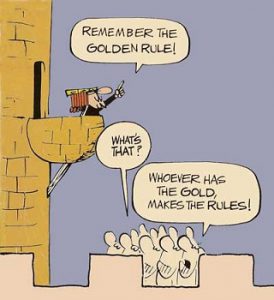
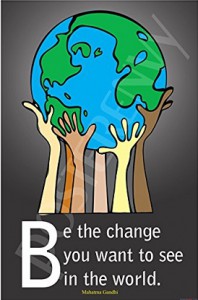
 As a little girl, Brown was at the center of the historic Brown vs. Board of Education case, which ultimately ended segregation in U.S. public schools. – Source:
As a little girl, Brown was at the center of the historic Brown vs. Board of Education case, which ultimately ended segregation in U.S. public schools. – Source: 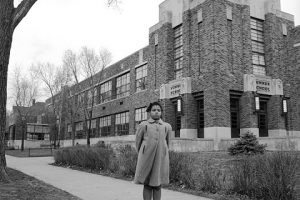 The case for little Linda Brown started the journey from de jure to de facto; eventually the de facto advanced closer to the de jure. We are here today, in a
The case for little Linda Brown started the journey from de jure to de facto; eventually the de facto advanced closer to the de jure. We are here today, in a 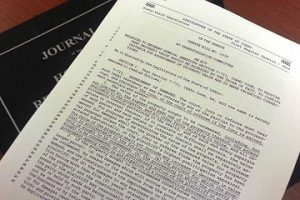
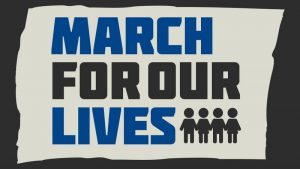 This is a Big Deal … right now. There was a school shooting in the US again; this time on February 14, 2018 in Parkland, Florida. 17 people were killed, 14 students and 3 staff members. Though the school, Marjory Stoneman Douglas High School, has 3100+ students, the survivors are not going away quietly; they are “mad as hell and not taking it anymore”; they are not satisfied with the status quo for gun control in this country and they are not going to settle for anything other than:
This is a Big Deal … right now. There was a school shooting in the US again; this time on February 14, 2018 in Parkland, Florida. 17 people were killed, 14 students and 3 staff members. Though the school, Marjory Stoneman Douglas High School, has 3100+ students, the survivors are not going away quietly; they are “mad as hell and not taking it anymore”; they are not satisfied with the status quo for gun control in this country and they are not going to settle for anything other than:

 According to reports obtained by the Jamaican Consulate in Miami, one of the victims of the tragic mass shooting at the Marjory Stoneman Douglas High School in Parkland, Florida on Wednesday, February 14 was the child of Caribbean Americans parents.
According to reports obtained by the Jamaican Consulate in Miami, one of the victims of the tragic mass shooting at the Marjory Stoneman Douglas High School in Parkland, Florida on Wednesday, February 14 was the child of Caribbean Americans parents.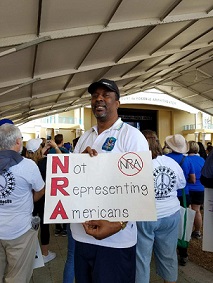
 Viola Desmond challenged racial segregation at a cinema in New Glasgow, Nova Scotia, in 1946. She refused to leave a whites-only area of the Roseland Theatre and was convicted of a minor tax violation for the one-cent tax difference between the seat she had paid for and the seat she used which was more expensive. Desmond’s case is one of the most publicized incidents of racial discrimination in Canadian history and helped start the modern civil rights movement in Canada.
Viola Desmond challenged racial segregation at a cinema in New Glasgow, Nova Scotia, in 1946. She refused to leave a whites-only area of the Roseland Theatre and was convicted of a minor tax violation for the one-cent tax difference between the seat she had paid for and the seat she used which was more expensive. Desmond’s case is one of the most publicized incidents of racial discrimination in Canadian history and helped start the modern civil rights movement in Canada.

 Welcome to March. Welcome to Madness. But the focus here is on basketball, not
Welcome to March. Welcome to Madness. But the focus here is on basketball, not 

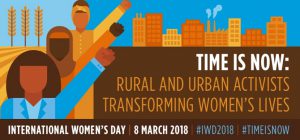 Can’t we all just get along?
Can’t we all just get along?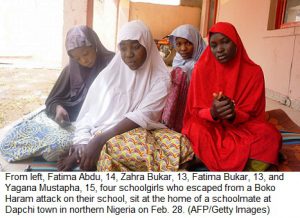

 If this is the truth for the “greatest of the greats”, how much more so for the “lesser of the Less Than‘s”?
If this is the truth for the “greatest of the greats”, how much more so for the “lesser of the Less Than‘s”?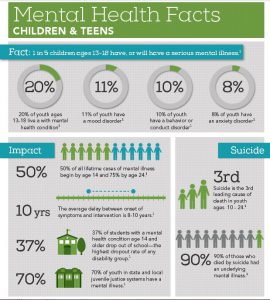
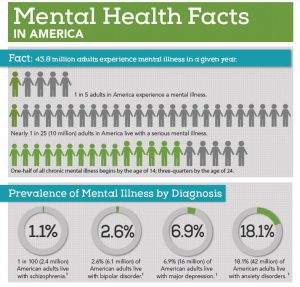
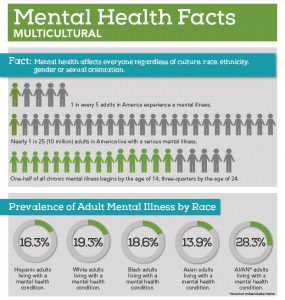
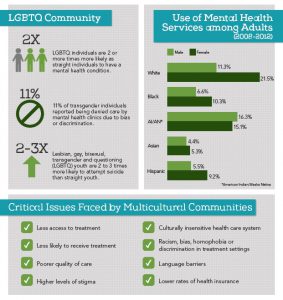
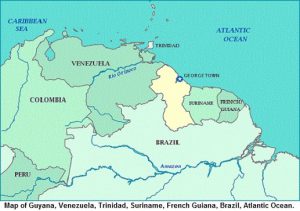
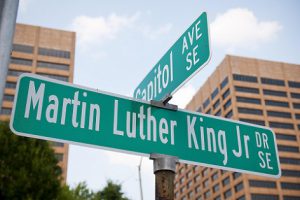 Martin Luther King was a great man – No Doubt!
Martin Luther King was a great man – No Doubt!
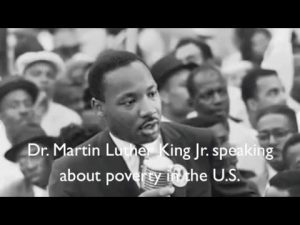 King traveled the country to assemble “a multiracial army of the poor” that would march on Washington to engage in nonviolent
King traveled the country to assemble “a multiracial army of the poor” that would march on Washington to engage in nonviolent  The “baton” for a Poor People’s Campaign has been passed on to a new generation: the
The “baton” for a Poor People’s Campaign has been passed on to a new generation: the 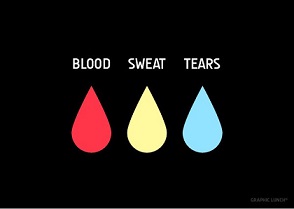 Blood, sweat and tears …
Blood, sweat and tears … This is a workable plan! When people sacrifice their blood, sweat and tears for a homeland, then they are less willing to disregard or abandon that homeland. We need this ingredient … urgently.
This is a workable plan! When people sacrifice their blood, sweat and tears for a homeland, then they are less willing to disregard or abandon that homeland. We need this ingredient … urgently.




 Here is an
Here is an 


